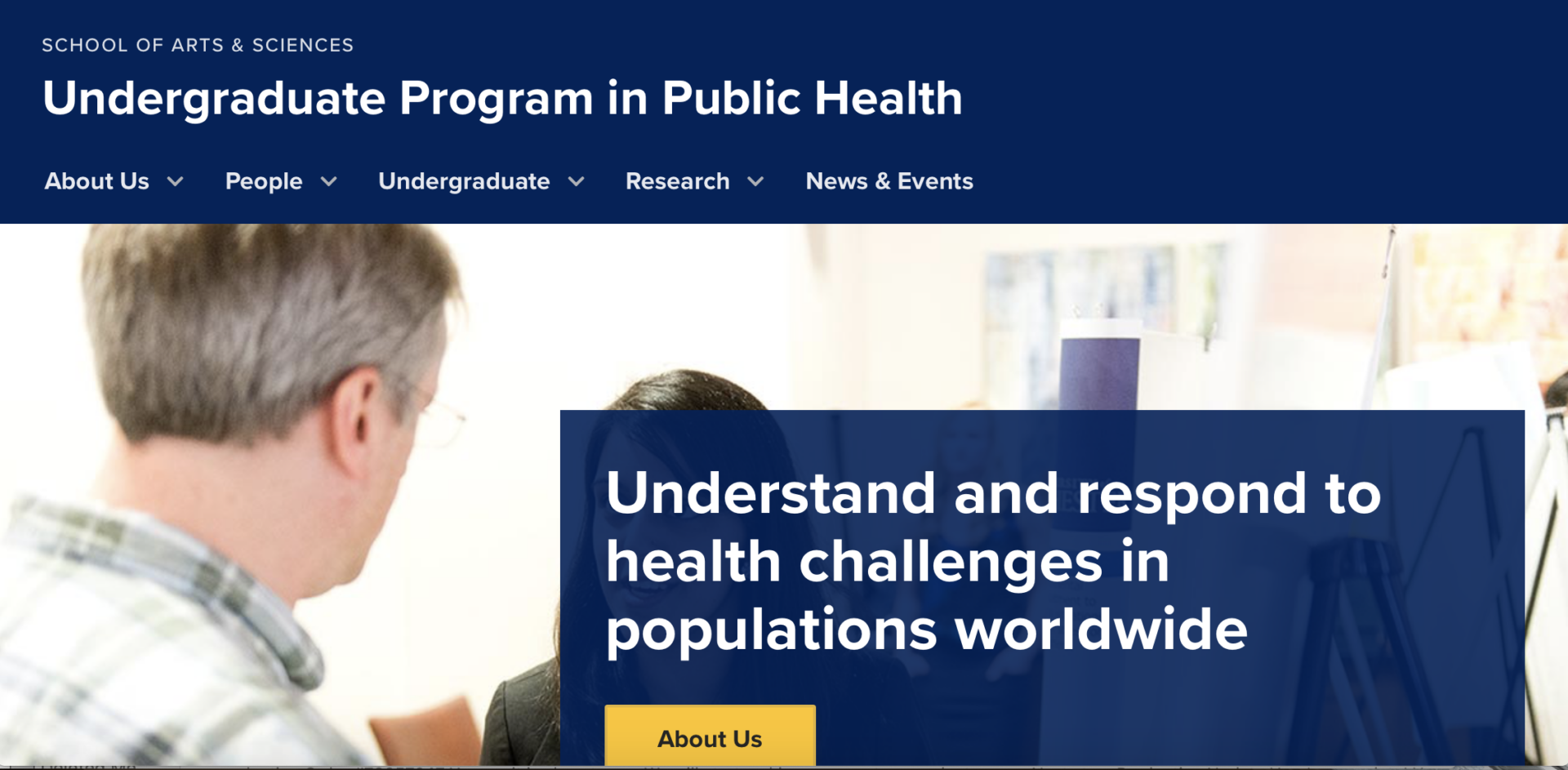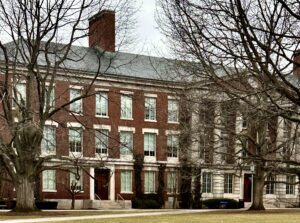If you’re anything like me, you showed up to the University of Rochester with no idea what to major in. I was considering everything from anthropology to psychology, to even music. I’ve always been strong in humanities fields, so when I decided to major in English, nobody was surprised. But, when I decided to add on a second major in public health (Health, Behavior, and Society, to be exact), my friends and family had a lot of questions.
“What even is public health?” “Why would you choose that if you want to study English?” “How are you studying health if you are not even pre-med?”
My first semester of freshman year, I was introduced to the concept of the social determinants of health—factors that influence one’s health, ranging from socioeconomic status, to education, living and working conditions, and beyond. Intrigued, I decided to take an introductory public health course. I was fascinated learning about how so many things other than medical care and hospitals contribute to one’s health. I love the idea of helping people and making a tangible impact in the world, and I am interested in healthcare, but I do not want to go to medical school. Thus, I continued with the program.
At the University of Rochester, there is no singular “public health” major. Students can major in Bioethics (which fulfills the humanities requirement of the curriculum), Environmental Health, Epidemiology (which both fulfill the natural science requirement), Health Policy, or Health, Behavior and Society (both of which are social sciences).
All of the public health majors share a common core curriculum of introductory classes, and after completing these requirements, students can pick a specific direction they want to move forward with, based on their own academic strengths and interests. I decided to continue on the Health, Behavior, and Society (HBS) track, as it was the most broad overview of the field and a good fit with my strengths in the social sciences.
A big perk of being an HBS major is the extent to which it crosses over with other academic disciplines. One of my favorite classes I have taken for my major has been “Intro to the U.S. Health System,” with Professor Raz. I initially was worried it would be a dry, difficult lecture on complicated aspects of policy, but instead, it was a fascinating overview of the history of healthcare in the United States. As someone who is interested in history but never found room in my schedule for history courses, I was pleasantly surprised by how much I enjoyed the class. For my HBS electives, the requirements are very flexible. I was able to fit in certain psychology electives I was already interested in, such as Psychology of Well-being.
While the major is very comprehensive, I still have availability in my schedule to pursue a double major, minor, and cluster, as well as a few other courses, without having to overload any semesters.
So, what does a typical semester look like for a junior majoring in public health? I’m currently taking four courses:
- Maternal Child Health Policy (PHLT234W), one of my public health electives, is a public policy-focused course centered on advocacy toward children and mothers.
- Medical Anthropology (ANTH216), a core course for Health, Behavior, and Society, explores cultural and social factors of health and illness.
- Psychology of Human Sexuality (PSYC 209), another public health elective, is a social science course exploring many areas of gender and sexuality.
- Longfrom Narratives (ENGL 283) is my only non-public health course I am taking this semester. It is a journalism course focusing on stories from the Rochester area, and it is an elective course for my English major.
My schedule provides lots of room for flexibility in exploring unique topics in depth, in addition to dabbling in other subject areas, all while maintaining a strong core focus in public health.
If you are entering the University of Rochester, and are unsure of what to study, one of the public health majors might be ideal for you. From the hard sciences, to public policy, to history and psychology, the public health department covers a range of academic interests, all while focusing on improving human health conditions. For those interested in social justice and advocacy, public health is a great place to start.
My advice for the undecided first-year student interested in making a positive change in the world is to register for Intro to Public Health (PHLT 101), and see where it takes you.


